The Peabody Institute is embarking on an innovative program of online teaching with a new music theory review course at the Conservatory for incoming graduate students, a new and improved jazz fundamentals class, and a series of pilot programs at the Preparatory to study and enhance long-distance, one-on-one music lessons.
“The Jazz Department pioneered online teaching at Peabody with a jazz fundamentals course it launched in 2008 and ambitiously upgraded last year,” says Sarah Hoover (DMA ’08, Voice), special assistant to the dean for innovation, interdisciplinary partnerships, and community initiatives. “It has also been teaching Jazz Improvisation I and II as ‘blended’ classes, with both online and in-classroom components, for the past eight years. Our Preparatory team has had an online music theory class for four years and has piloted online lessons. But we just went live with the graduate theory review class, which will be the first in a suite of courses to help prepare students to be successful applicants for graduate or undergraduate study in U.S. conservatories. Future additions to the suite will include English as a second language, remedial music history, and ear training. We’re also building an occupational health course, Anatomy for Musicians.”
Dr. Hoover says the immediate plan is to serve incoming Conservatory students, “but we are moving toward serving a wider population, both in the Preparatory and beyond. There is currently no online programming in classical music that spans the gap between high school and conservatory, gathering all of the necessary skills training in one place under one reputable brand, and this is a space Peabody hopes to occupy.”
Steve Stone, a longtime member of the Conservatory faculty who is teaching the music theory review course, was a bit of a skeptic at first. “There’s something about in-person classroom interaction, being able to see students’ faces, what they’re getting and not getting,” he says. “And sometimes with new technology, we get carried away — this is neat, but does it help? So we kept it focused on the student experience. How do you keep the good parts, even if you can’t make it the same?”
Dr. Stone’s new course allows incoming graduate students to study over the summer, from wherever they happen to be, for a placement exam they take during orientation, and he is so pleased with the experience that he is considering incorporating it into his regular classes. “Now that I have the lectures made, I can use them in both online and on-campus classes,” he says. “I’d like to try having students watch them before class so we can use the classroom more as a workshop.”
Gary Thomas, the Richard and Elizabeth Case Chair in Jazz Studies, says that he and his then-teaching assistant (now academic coordinator for the jazz program), Ian Sims (ENGR BS ’08, Electrical Engineering; BM ’08, MM ’10, Jazz Saxophone; MA ’10, Audio Sciences), started researching online teaching in 2006. Mr. Thomas wanted to find a way to both lighten his own teaching load — he was performing a lot and building the department, constantly adding new classes and lessons — and make his jazz fundamentals class more accessible to students with scheduling challenges.
“The original was just a theory course. Then, when Dean Bronstein came in and said he really wanted to delve into online teaching, we decided to launch a more ambitious version — ear training, jazz improvisation, performance,” says Mr. Thomas.
Working day and night with graduate assistant Jonathan Guo (BM ’13, GPD ’16, Jazz Bass), Mr. Thomas built the course as he was teaching it during the 2015–16 academic year.
“It works well for really serious students,” he says. “You do have to keep on top of students who don’t do their assignments and fall behind. But I noticed that the students who got through it, when they played their juries, sounded better and more informed, their playing more sophisticated, than students in previous years.”
Zane Forshee (MM ’01, GPD ’03, DMA ’11, Guitar), who chairs the Guitar Department at the Peabody Preparatory and has participated in two six-week pilot programs giving lessons online, says students seem pleased “because it uses a piece of technology that’s so relevant and necessary in their lives.” There are still limitations — not being able to immediately correct a student’s posture, not being able to play together. But, he says, “it feels as if this instrument I play, with its long history, is somehow modernized by the process.”
Gavin Farrell (MM ’99, Percussion; MM ’01, Theory), executive director of the Peabody Preparatory, says feedback from the pilot programs is “helpful to us and our IT folks in just tweaking the system. It’s going to be a process to bring our faculty on board and get students and families comfortable, but teachers have been doing this unofficially for quite some time. It’s a great way to keep up with our students over the summer or when their teachers are performing in Europe. And when there’s a blizzard, I can’t tell you how many lessons get made up on Skype. With technology changing so rapidly, it’s exciting to dream about what we might eventually be able to do.”
— Joan Katherine Cramer

